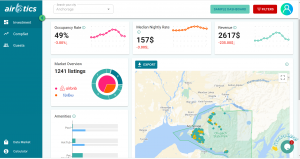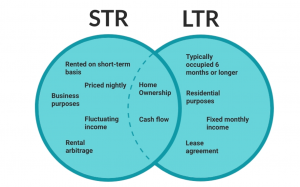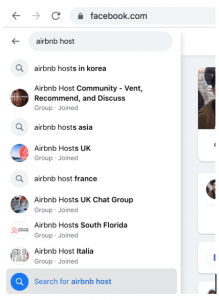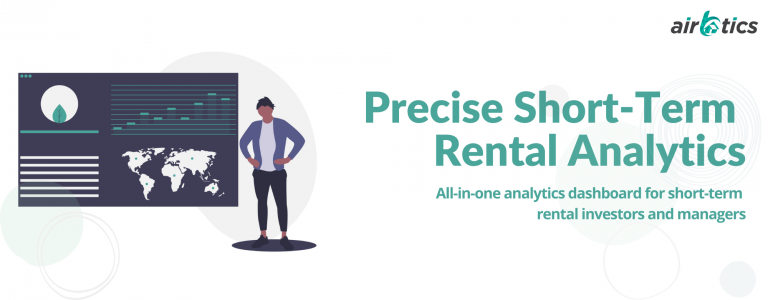Is Airbnb legal in Anchorage?
Anyone considering opening a short-term rental property should be familiar with Anchorage Airbnb Regulations. You will learn about short-term rental regulations, ordinances, short-term rental activity, and market changes relating to real estate.
There are currently 852 Airbnb listings in Anchorage, with 6,4% of entire houses earning up to $3,066 a month, 5% managed by professionals, and 17% managed independently. Apart from complete houses, Anchorage’s Airbnb offerings include 4% of private rooms and 20% of apartments(condos). According to short-term rental data source Airbtics, a 2-bedroom apartment in Anchorage can make up to $31,500 each year.

Here we will provide some useful information that can help you better understand the Anchorage Airbnb regulations.
Room Tax
Anchorage City Code (AMC) permits the collection of a 12,5% tax on short-term room rental transactions, which are rentals lasting less than 30 days. Operators (known as room taxpayers) include hotels, motels, bed & breakfasts, condos, rental homes, and apartment complexes. Room tax is also known by other names, such as bed tax, occupancy tax, temporary occupancy tax, and hotel tax.
A rental company must register with the Treasury before renting a room. Operators are responsible for collecting, protecting, and paying the Municipality’s room taxes on time.

Anchorage Airbnb Regulations
In 2016, the Anchorage council agreed to allow “Hosting Platforms” such as Airbnb to collect and return the city’s 12% room tax. It’s part of the city’s endeavor to regulate all types of Short-Term Rentals as long as the stay is 30 days or less. Airbnb owners do not need to register with the Treasury Department, but everyone else must.
Reference| Muni.org
Pros and Cons of running Airbnb in Anchorage
A short-term rental is a vacation rental property that is rented out on a short-term basis to guests in a similar fashion to hotels. But, this type of rental allows the guests to feel more comfortable and “at home” because these properties are often equipped in this manner.
A long-term rental is the most common sort of rental property utilized for residential purposes. This sort of rental property is usually protected by a long-term lease agreement with more binding terms than a short-term rental. Homeowners can generate a constant income by renting out their properties at a higher price than their mortgage. Most people are usually more familiar with this type of rental property as it is more traditional and widely known.

Now that we’ve defined vacation rentals and long-term rental properties, let’s look at each component of rental properties that explains both the benefits and drawbacks of a short-term or long-term rental.
Pros
Flexibility – You have the freedom to rent for as many days, weeks, or months as you choose. You can rent as much or as little as you want. There’s also the option of traveling at the drop of a hat and earning money while you’re at it!
Privacy – Short-Term Rentals are ideal for families. They provide guests with more privacy and space than standard hotels.
Earns more money than a long-term rental – It’s simple to calculate: 1 vacation week for $1500 compared. $1500 each month for a year’s rent.
Excellent Deductions – There are many popular deductions available to rental property owners. Cleaning and maintenance, insurance, management fees, and utility bills are just a few examples. With enough deductions, you may claim a loss and avoid paying taxes entirely.
Tax Breaks – Short-Term Rental Owners receive the best home-related tax breaks.
Less Wear and Tear on the Property – With renters coming and leaving regularly, you can keep up on minor repairs before they become major issues!
Social Perks – There are many intriguing individuals out there, and many of them travel! Your next Short-Term Rental acquaintances could become lifelong pals!
Cons
Less payment consistency – If you rely on a consistent income, a yearly renter is a far better bet. There is a chance you will go weeks or months without a Short-Term Renter.
Must cover the utilities – Utility costs are usually paid by long-term renters. Short-term tenants do not.
Increased risk – Due to the sheer volume of people passing through your doors, there is a higher likelihood of theft, breakage, or problem renters.
Requires extra effort – In most cases, you become the innkeeper. You’ll be in charge of collecting rent, scheduling customers, and doing anything else necessary to bring in new tenants. Instead of doing it every 5 years or so, you’ll be doing it every week!
Additional maintenance expenses – As the landlord, you are responsible for housekeeping, yard work, pool maintenance, and general upkeep. Not always the case with a long-term renter.
Some HOA-managed neighborhoods make it tough and complicated to rent short-term Rentals. Everyone wants peaceful, pleasant circumstances where they feel safe and know everyone, not a constant stream of strangers in and out at all hours. They may submit complaints, and some HOAs may sue Short-Term Rental Owners.
Conclusion
If you’ve made it this far, you’re thinking of starting an Airbnb.
We’ve been assisting folks like you, who are first-time Airbnb hosts. We don’t provide consulting since we aren’t experts in running Airbnb businesses; instead, we are a data company that provides helpful information to Airbnb hosts.
You may use the Airbtics dashboard to figure out how much money you can make doing Airbnb in your city. Unlike other online Airbnb income calculators, it will provide you with a lot more useful information, such as
- which neighborhood to target,
- which amenities are in high demand,
- what is the market’s historical performance,
- what are the occupancy rates of a two-bedroom house,
- should I do a two-bedroom house or a three-bedroom house?
The tool might be a little too complex for you in that case, visit our tutorials – it will walk you through how you can get meaningful and actionable insights from the data dashboard.
Well, if you are new, there are many Airbnb host communities on Facebook. Simply type “Airbnb host” in the Facebook search, and you’ll see plenty of active communities where you can get help from experienced Airbnb hosts.

To see full data of Anchorage– Click Here





